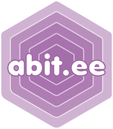A new global study by the University of Melbourne and KPMG has found that the majority of workers regularly use AI to increase productivity, but conceal this from their bosses and neglect data security concerns.

G. Ostrov
A comprehensive study conducted jointly by the University of Melbourne and consulting firm KPMG has revealed surprising facts about the use of artificial intelligence in workplaces. The survey covered more than 32,000 employees from 47 countries worldwide, providing a detailed picture of AI utilization in professional activities.
Widespread adoption of AI in work processes
According to the data obtained, over 50% of employees around the world actively use artificial intelligence tools when performing work tasks. Approximately one-third of respondents admitted to using AI services daily or several times a week. The main benefits of using artificial intelligence cited by respondents were significant productivity improvements and substantial time savings.
Security and ethical concerns in AI usage
Despite the obvious advantages, the study identified alarming trends regarding data security and ethical aspects of AI application:
- About 50% of workers admitted to misusing artificial intelligence tools, and 63% observed similar actions by their colleagues.
- 48% of respondents reported uploading confidential corporate information or client data to publicly accessible AI platforms. Notably, in organizations with an official ban on AI use, such violations occur twice as often compared to companies without restrictions.
- 56% of employees are unaware of corporate policies regarding the use of artificial intelligence but continue to apply neural networks in their work.
- 66% of employees unconditionally trust information obtained from AI, and 55% present artificial intelligence work results as their own.
- 61% of workers hide from management the fact that they use AI assistants and chatbots when performing tasks.
Lack of proper training and prevalence of free services
The study also found that 70% of respondents prefer free AI platforms. However, only 47% of employees have received any training on working with neural networks and other AI tools. This indicates a significant gap between the active implementation of new technologies and the level of staff competence in this area.
Recommendations for organizations
Experts from KPMG and the University of Melbourne recommend that companies develop a clear artificial intelligence usage policy that should include:
- Regulations on the use of AI tools with defined permitted services and areas of application.
- Training programs for employees on safe and effective work with artificial intelligence.
- Mechanisms for monitoring compliance with information security rules when using AI.
- Encouraging open and transparent use of artificial intelligence technologies in work processes.
"Artificial intelligence is rapidly transforming the work environment, but it is necessary to ensure the safe and responsible use of these powerful tools," the study authors note.
For more information about the study, visit the official KPMG website.
If you have any problems, write to us, we will help you quickly and efficiently!




